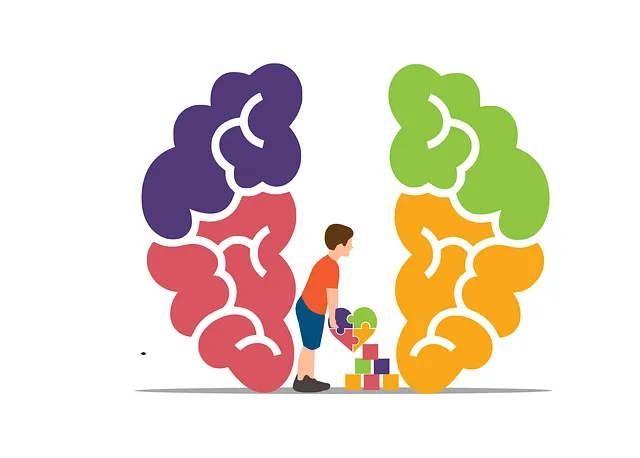Westminster Kaiser Permanente mental health facility tackles substance abuse holistically, recognizing its complex roots in social skills deficiencies, lack of inner strength, and cultural barriers. They offer tailored programs like Healthcare Provider Cultural Competency Training, Social Skills Training, and Inner Strength Development to empower individuals with coping strategies and self-care routines. Individualized risk assessments consider personal history, mental health status, social environment, and genetic predispositions for personalized interventions including Cognitive Behavioral Therapy (CBT), Motivational Interviewing (MI), and policy advocacy. Community outreach programs build strong support systems while stigma reduction efforts foster inclusive communities for long-term recovery.
Substance abuse poses significant risks, impacting individuals’ physical and mental well-being. This article explores comprehensive risk reduction strategies to combat this issue. We delve into understanding the complexities of substance abuse and its associated dangers. Key players, like the Westminster Kaiser Permanente mental health facility, play a pivotal role in prevention through specialized programs. Individualized risk assessments, evidence-based interventions, and robust support systems are highlighted as essential tools for long-term recovery. By combining these approaches, we can effectively mitigate risks and foster healthier communities.
- Understanding Substance Abuse and Its Risks
- The Role of Mental Health Facilities in Prevention
- Individualized Risk Assessment Strategies
- Evidence-Based Interventions for Risk Reduction
- Building Support Systems for Long-Term Recovery
Understanding Substance Abuse and Its Risks

Substance abuse is a complex issue that can have severe consequences on an individual’s health, relationships, and overall well-being. It refers to the harmful use of drugs or alcohol, leading to physical and psychological dependence. At Westminster Kaiser Permanente mental health facility, we recognize that substance abuse isn’t just about addiction; it often stems from underlying issues and environmental factors.
Understanding these risks is crucial in developing effective prevention strategies. Many at-risk individuals may struggle with social skills deficiencies, lack of inner strength, or face cultural barriers when seeking help. Healthcare Provider Cultural Competency Training, Social Skills Training, and Inner Strength Development programs are integral to addressing these aspects. By implementing such initiatives, facilities like Westminster Kaiser Permanente can better equip individuals to manage their mental health and make informed decisions regarding substance use, ultimately reducing the potential for abuse and its associated dangers.
The Role of Mental Health Facilities in Prevention

Mental health facilities play a pivotal role in preventing substance abuse by addressing underlying psychological issues and providing comprehensive care. Organizations like Westminster Kaiser Permanente mental health facility offer tailored programs that go beyond traditional therapy. These facilities often host Stress Management Workshops, which teach individuals effective coping mechanisms to handle stress and anxiety without turning to substances. Additionally, Social Skills Training helps clients build healthy relationships and improve communication, reducing social isolation that can contribute to substance abuse.
Self-Care Routine Development for Better Mental Health is another key aspect. Mental health professionals guide patients in creating personalized routines that promote well-being. This includes activities like meditation, exercise, and hobbies that foster relaxation and self-esteem. By integrating these practices into daily life, individuals can better manage their mental health proactively, reducing the risk of turning to substances as a coping mechanism.
Individualized Risk Assessment Strategies

At Westminster Kaiser Permanente mental health facility, individualized risk assessment strategies play a pivotal role in substance abuse prevention and treatment. Each individual’s journey with addiction is unique, necessitating tailored approaches. Assessments go beyond traditional methods by factoring in personal history, mental health status, social environment, and genetic predispositions. This comprehensive analysis allows for the creation of personalized intervention plans that address specific risks and vulnerabilities.
Effective strategies include enhanced communication techniques, promoting healthy social skills training, and encouraging positive thinking. By implementing these communication strategies, individuals can openly discuss their struggles and seek help without stigma. Social Skills Training equips them with tools to navigate relationships and avoid triggers, fostering a supportive network crucial for recovery. Moreover, instilling Positive Thinking helps individuals reframe negative thoughts, build resilience, and maintain motivation throughout the healing process.
Evidence-Based Interventions for Risk Reduction

At Westminster Kaiser Permanente mental health facility, evidence-based interventions play a pivotal role in risk reduction strategies for substance abuse. These evidence-based practices are designed to address the complex interplay between mental health and substance misuse, focusing on both the individual and community levels. One such intervention is Cognitive Behavioral Therapy (CBT), which helps individuals identify and change negative thought patterns and behaviors associated with substance abuse. Another effective approach is Motivational Interviewing (MI), a client-centered communication style that strengthens an individual’s motivation for behavior change.
In addition to these, Emotional Well-being Promotion Techniques have gained prominence in enhancing resilience and coping mechanisms among at-risk populations. Confidence Boosting strategies, often integrated into therapy sessions, aim to empower individuals with self-assurance to resist substance abuse temptations. Beyond facility-based interventions, Mental Health Policy Analysis and Advocacy efforts are crucial for creating systemic changes that support comprehensive risk reduction initiatives. By combining these evidence-based practices and policy advocacy, Westminster Kaiser Permanente mental health facility strives to offer holistic solutions that tackle the root causes of substance abuse effectively.
Building Support Systems for Long-Term Recovery

Building support systems is an integral part of long-term recovery from substance abuse. At Westminster Kaiser Permanente mental health facility, they understand that healing is a journey and requires a network of care. One effective strategy is through community outreach programs that connect individuals to local resources and peers who have shared similar experiences. These programs offer ongoing support, education, and access to treatment options, ensuring those in recovery feel empowered and less isolated.
Implementing a Community Outreach Program can bridge the gap between clinical care and community integration. By fostering connections with local organizations, schools, and faith-based groups, individuals in recovery have opportunities for social engagement, reducing risk factors associated with loneliness and isolation. Mental Health Policy Analysis and Advocacy also play a crucial role in shaping environments that support recovery, while Mental Illness Stigma Reduction Efforts work to create more inclusive communities where individuals feel safe and understood.
Substance abuse poses significant risks, but proactive strategies can mitigate these dangers. By understanding the complexities of substance abuse and its underlying causes, we can develop effective prevention methods. Mental health facilities, like those at Westminster Kaiser Permanente, play a pivotal role in providing specialized care and risk assessment services. Individualized interventions, based on thorough assessments, have proven to be game-changers in reducing risks. Evidence-based treatments and building robust support systems are essential for long-term recovery success. Implementing these strategies can lead to healthier communities and improved lives for those struggling with substance abuse.






